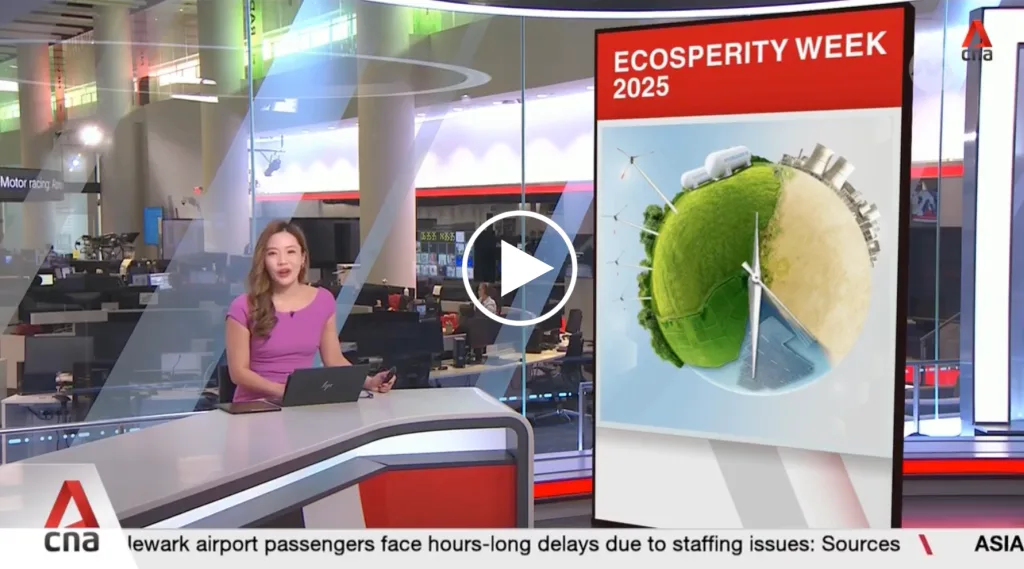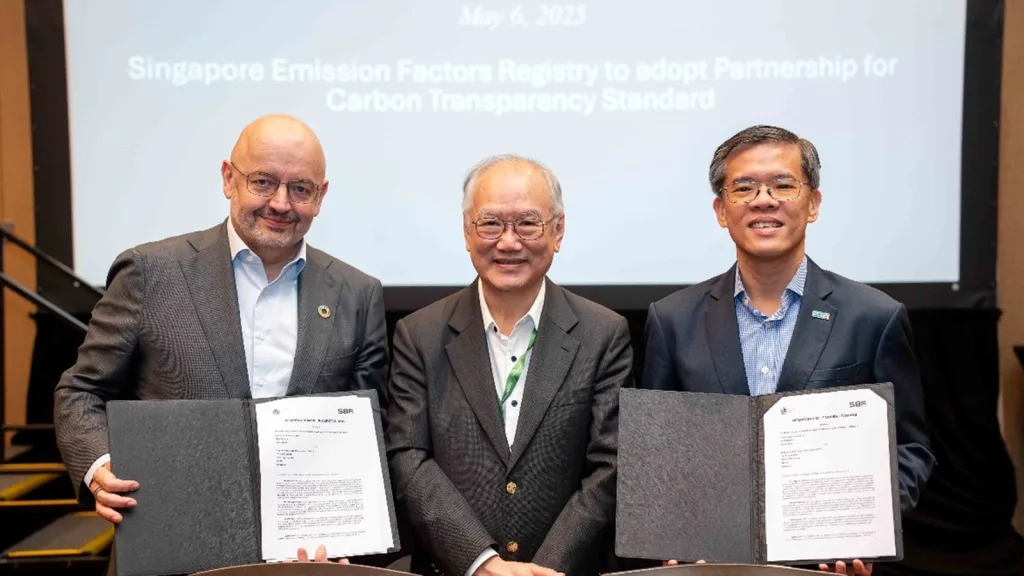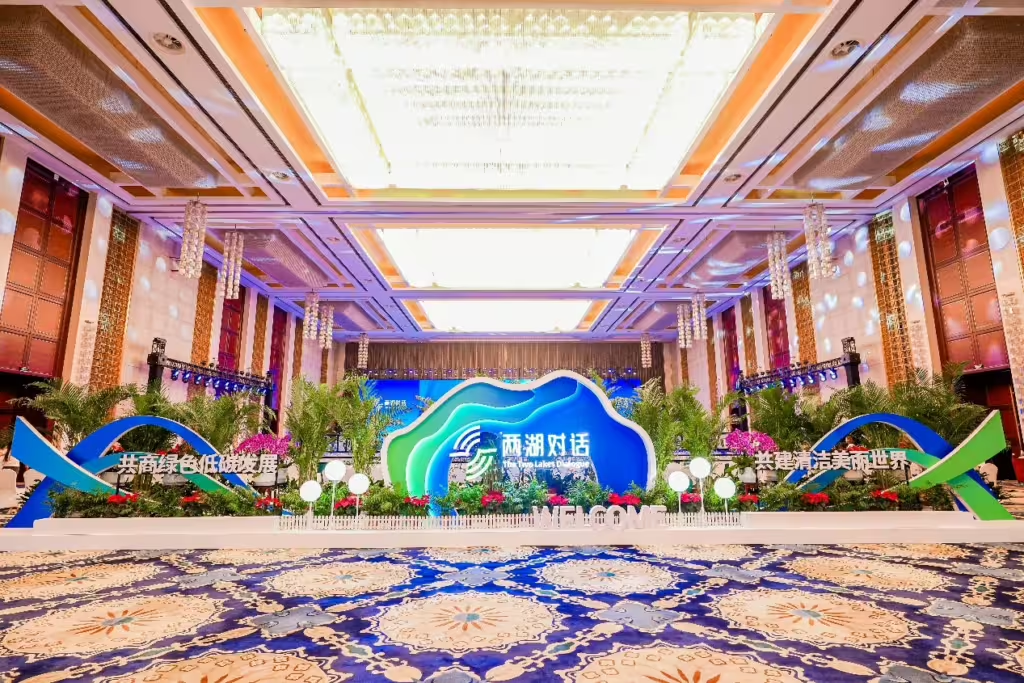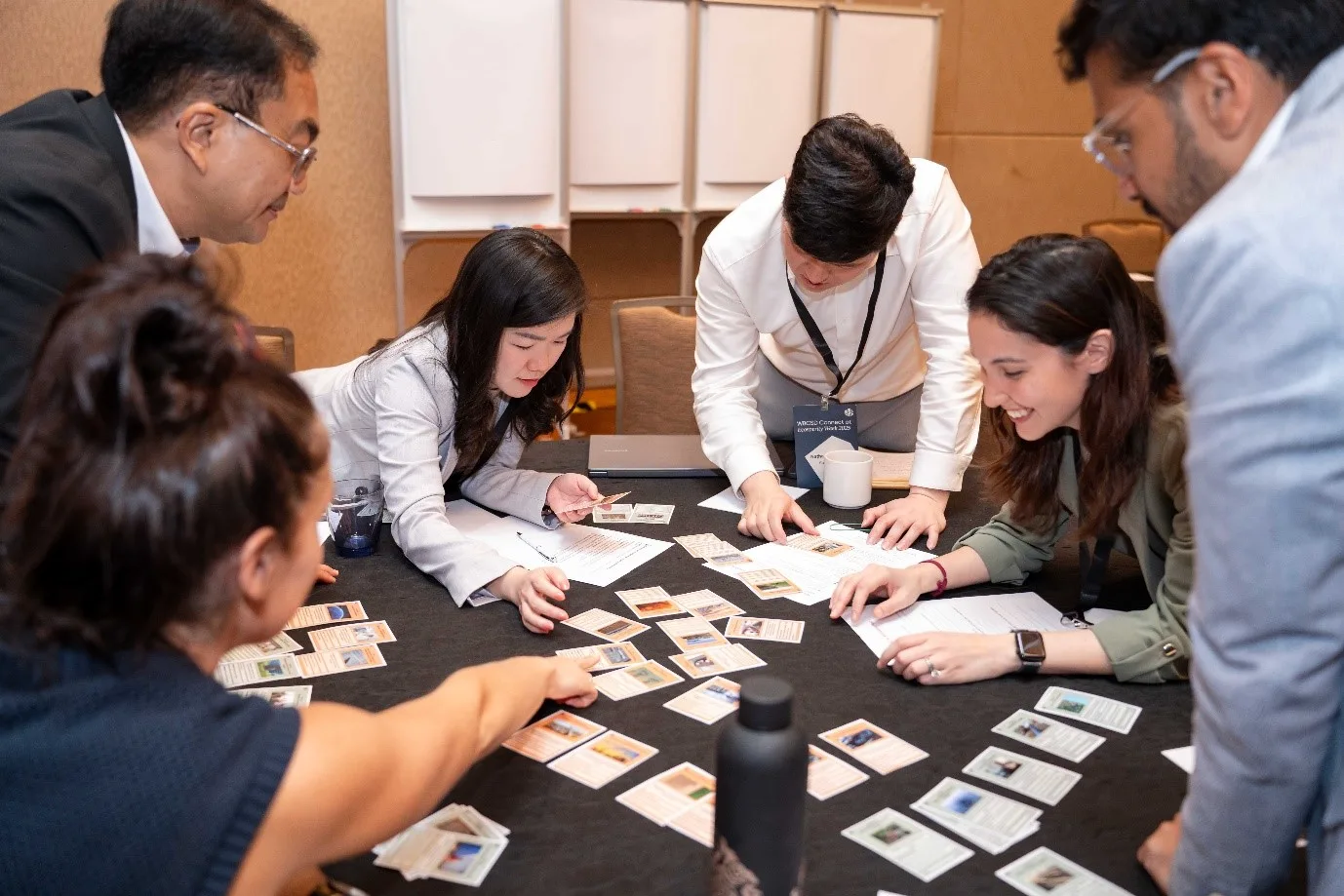Ecosperity is an amazing event, which is really beginning to grow globally as the leading sustainability event, in this part of the world.
– Peter Bakker, President and CEO of WBCSD, 6 May 2025 (Channel News Asia Interview)

Asia’s Race towards 2030: All Systems Go was the theme at Ecosperity Week 2025 in Singapore. The four-day event brought together government representatives, financiers, and industry for a stocktake on where Asia stands in terms of meeting its 2030 decarbonization goals and to identify strategic areas of systems-level change the region requires.
WBCSD had a clear agenda: to align finance and high-quality data to build resilience and accelerate decarbonization in a nature-positive way. We convened our member community alongside policymakers and financial institutions focusing on action, implementation and business value.

On 5 May at the inaugural Carbon Removal Leaders’ Summit, convened by WBCSD alongside partners Climeworks, Climate Impact X, Tsao Pao Chee and South Pole, companies explored what it will take to scale up removals in support of climate action.
There was a strong consensus in the room: The Intergovernmental Panel on Climate Change makes it clear that there is no net-zero world without carbon removals. That means we need a functioning carbon market to reduce emissions and encourage innovation with scalable market-driven climate solutions. We need both reductions and removals. We need both technological and nature-based solutions, each plays a different role and both are essential.
Singapore becomes world’s first PACT-aligned emission factors registry
On 6 May, WBCSD and the Singapore Business Federation (SBF) launched a new partnership that makes Singapore the world’s first emission factors registry (Singapore Emissions Factors Registry: SEFR) to adopt PACT Methodology Version 3 (V3). This milestone empowers tens of thousands of Singapore businesses to calculate accurate, granular and comparable Product Carbon Footprints (PCFs), dramatically boosting transparency and standardization in the way emissions data is reported and exchanged across organizations.
By aligning SEFR with PACT v3, we’ve set a new global benchmark, unlocking reliable carbon data to meet growing regulatory demands, drive green procurement, unlock sustainable investments, and accelerate Scope 3 decarbonization strategies.

Following the announcement, we hosted a workshop with KPMG and SBF focused on addressing Scope 3 emissions through supplier engagement, a critical lever for staying competitive and resilient in today’s market. There was strong demand for SME involvement and tailored decarbonization support, with broad participation from financial institutions, tech players, auditors, and third-party verifiers, all focused on turning decarbonization into a business opportunity.
Leveraging the Corporate Performance & Accountability System (CPAS)
WBCSD participated in events with the Glasgow Financial Alliance for Net Zero (GFANZ) and the Industrial Transition Platform Network (ITPN), hosted a workshop on transition planning and integrated approaches to mitigation and adaptation, and convened a CPAS Roundtable on physical risk along value chains with finance executives from the real economy, investment leaders from asset managers, owners, banks, and the Monetary Authority of Singapore.
The discussions revealed innovative and sophisticated examples of integrating finance and sustainability, including environmental Weighted Average Cost of Capital (WACC) and Value at Risk (VaR). There was a strong sense of pragmatism—recognizing that sustainability action must align with economic growth and business performance. Collaboration emerged as a recurring theme, with policymakers, financial institutions, and companies signaling a shared commitment to global best practice and mutual learning.
Climate-proofing businesses and communities
Workshops with members focused on managing climate-related risks and embedding transformative innovation and resilience into performance management. These sessions highlighted the use of AI-powered, data-driven modeling platforms to strengthen resilience and reduce emissions, along with integrated frameworks that align decarbonization targets with climate adaptation—anchored by clear milestones and deeper public-private collaboration.
Nature-positive finance with the Singapore Sustainable Finance Association
Businesses shared real-world examples, from TNFD-aligned sustainability-linked loans to large-scale conservation efforts and circular economy investments. Financial institutions showed strong interest, provided that credible data and clear outcomes were in place.
Inclusive energy transition with ERM
Our members came together on actions to enable a just energy transition through people-centric transition planning that includes workforce skilling and community resilience. Five priorities emerged: reskilling, green job creation, just-transition programs, inclusive participation, and policy coordination.
Overall more than 250 people engaged in our sessions throughout the week, from over 100 ambitious companies.
Conclusion
Ecosperity Week in Singapore underscored the powerful potential of collaboration, showing how finance, government, and business can come together to drive real-world decarbonization, build resilience, and deliver nature-positive outcomes at scale.
Outline
Related
Content

“Two Lakes Dialogue” | 2024 International Green Low-Carbon High-Quality Development Cooperation Conference Successfully Concludes in Wuhan
17 July, 2024

#BuildingToCOP26 Coalition accelerates climate action ahead of Cities, Regions and Built Environment Day at COP26
7 September, 2021

‘ESG Spain 2021 – Corporate Sustainability Forum’ by Forética presents the keys to accelerate business transformation that fosters a sustainable, green and inclusive recovery
1 October, 2021
